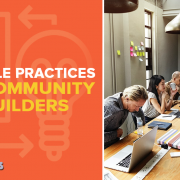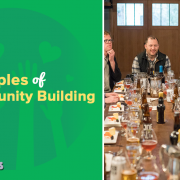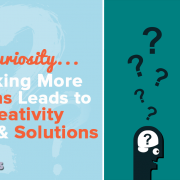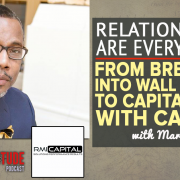6 Simple Practices for Community Builders
As we all know, it’s one thing to have the heart to want to make a difference in your community. It’s quite another to actually express that in a way that others can understand.
In the last post, I wrote about the mindset it takes to have an impact in your community. Essentially, if you want to grow your community, you have the community in mind as you’re working.
Meaning if you’re working with a nonprofit, for example, you want to be working with those people the nonprofit is meant to help to reach solutions. Same could be said about developing an online following. If you want people to engage with you, you have to reach out first.
But what does it mean to reach out? To be someone who cares? What are the actions that this person takes?
Here’s 6 simple practices to help you reach out and start impacting the lives of others.
6 Practices of a Community Builder
Listen and Examine
The first place you want to start when making an impact for your community is to simply listen. What are some of the problems that aren’t being addressed? Out of these problems, are there some issues you could personally help with? Is there something that sounds like it’d be fun, but maybe you don’t know that much about?
If so, get good at asking questions and digging deeper. This process, called Idea Extraction, is a skill just about anyone can put to use in their work.
Skill Up and/or Branch Out
Once you learn what the issues are in your community, it’s time to figure out some solutions. In the entrepreneurial space, this could be anything from coming up with a service of some sort to creating some software, or even creating a course that people can take on a particular topic.
If you’re in the nonprofit space, maybe you find out that a group of people aren’t being addressed the way you’d like. What would be the solution to that which would be beneficial to everyone in the community? How can you make it a win-win-win?
In either situation, you can choose to do the work yourself (or learn to) or you can team up with someone who’s already well vetted in the work you’re looking to do. A great skill to have is one where you find problems and plug people into them who are naturally gifted at fixing that kind of issue.
Act like Nick Fury and find your team!
Plan Together
Now that you’re starting to put together your own group of Avengers, it’s a good idea to get their input as far as decision making goes. Forming a council or a board of these early folks is a great idea so that you can regularly bounce ideas off of each other.
One thing you don’t want to do is to be the one constantly making decisions for the entire group. If you find yourself in that role, then there might be some things you don’t see and people might inadvertently keep info from you that would have helped make a better decision.
So make sure this group of yours plans together regularly to avoid these issues. Also, there’s the added benefit in iron sharpening iron… if you’ve selected the right people.
Oh, and make sure that these meetings are kept to a minimum. Idea people love to think things out, but if you include implementers into this meeting, they might just lose interest.
Mobilize and Implement
In the US military, there are two distinct groups of people. There are enlisted folks and then there’s officers. Officers are the supervisors of the enlisted. While they think about what needs to be done, the enlisted people have to figure out how to actually get it done.
In this new group of yours, it makes sense to plan. However, great plans don’t lead to great results on their own. You’ll need to take action to get the desired effect you want.
What’s great is that usually your implementers are usually not the idea people in your group. So make sure you let them figure out how something will actually get done once you figure out what that something is!
Adjust and Re-adjust When Necessary
Here’s the thing about implementing a plan. Sometimes it might not work out the way you thought it was going to go. In fact, most of the time, it’s not going to work out the way that you first expected it to. However, that’s not a problem. You’re not a sniper. You don’t have to calculate all the things that can go wrong with your one shot before you take it. Instead, you should think of yourself as someone who’s in control of a machine gun. Fire, then adjust your aim until your bullets start hitting the mark.
So, for example, what does this mean in the nonprofit world? Let’s assume you’re working with people who have a specific kind of health related issue. It’s your job to get them the care they need or connect them to people who can. However, they’re not showing up to their appointments with you or with the other people who can help them.
Why? Why is that not happening? It’s NOT your job to blame them for not seeking the help. It’s your job to reach them where they’re at!
Celebrate Wins
I’m sure there’s people out there that say that they don’t like taking the time to celebrate a job done well. However, those people are few and far between.
Truth is, people like being rewarded for their efforts. And sometimes, the work might be hard, and sure the outcome was worth it, but it might feel a little empty to some of your group members. They might feel like they’re being taken advantage of.
So make sure to celebrate the successful campaigns, the stressful events, and the big launches. Your team will feel like you actually appreciate them and will want to continue to put the effort into this meaningful work.
Action Steps
Now that you see what kind of work it takes to build a community, it’s up to you to fit in the details. This is simply a formula that works for just about any kind of mission. If you have any questions regarding some of the specifics of any of these steps, ask below. I’d love to tell you how we handled something for Amplify.





 abundance mindset
abundance mindset

